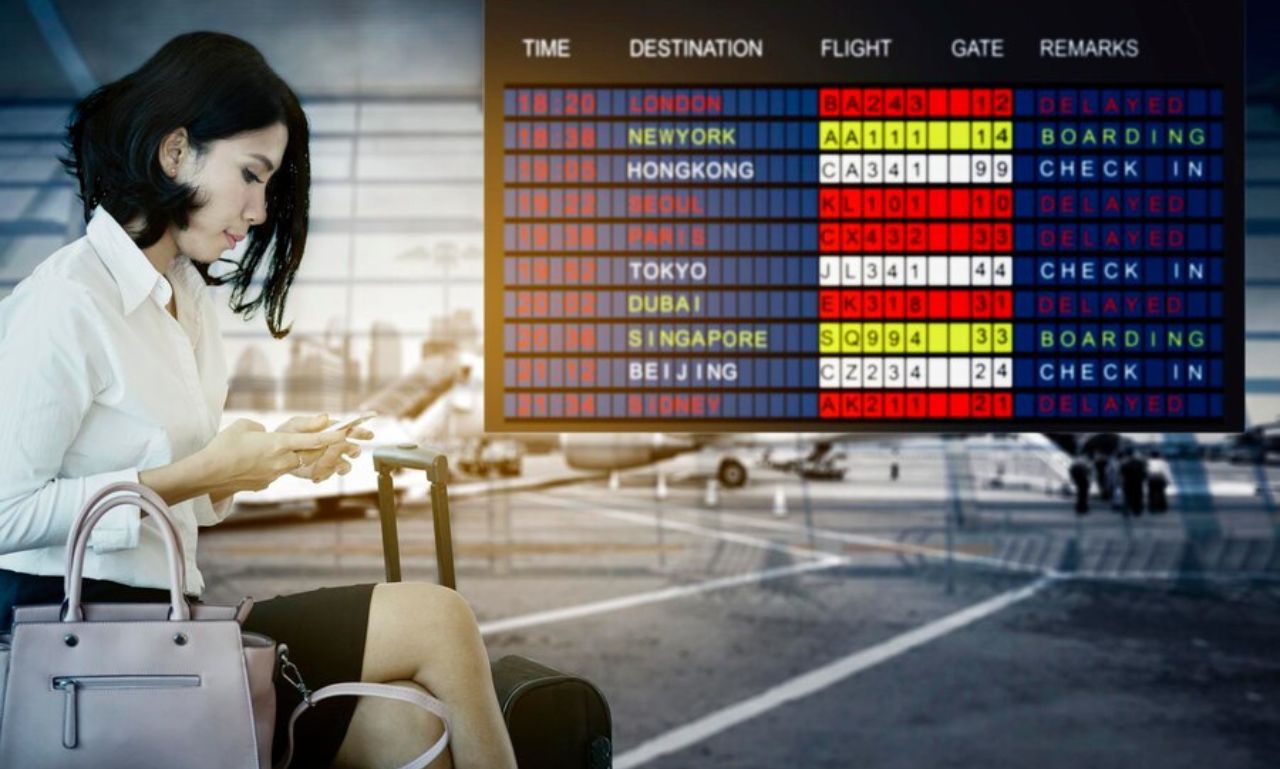For those who rely on a CPAP (Continuous Positive Airway Pressure) machine for managing sleep apnea, quality rest while traveling can feel elusive. However, thanks to advancements in portable CPAP technology, enjoying a good night’s sleep away from home is more achievable than ever. This guide dives into everything you need to know about Travel CPAP machines, their benefits, key features, and tips for choosing the perfect portable CPAP for your next adventure.
What Is a Travel CPAP and Why Is It Important?
A Travel CPAP is a compact, lightweight version of a standard CPAP machine designed specifically for travelers with sleep apnea. It helps maintain consistent airflow and ensures that users can breathe steadily throughout the night, even on the go. Having a portable CPAP machine enables you to maintain your sleep therapy routine, which is vital for your health and well-being, wherever you may be.
Key Benefits of a Travel CPAP
- Portable and Compact: Travel CPAP machines are smaller and lighter than home units, making them easier to pack.
- Battery-Powered Options: Many travel Continuous Positive Airway Pressuremodels offer battery backup or built-in rechargeable batteries, ideal for locations without power outlets.
- Quiet Operation: Designed for close-quarters travel like flights and shared rooms, travel CPAP machines are typically quieter than standard machines.
- Adjustable Pressure Settings: Tailored pressure adjustments provide comfort, adapting to your breathing needs in different altitudes or conditions.
Key Features to Look for in a Travel CPAP Machine
When selecting a travel CPAP, look for features that will enhance comfort, convenience, and effectiveness. Here are some of the most important aspects to consider:
Lightweight and Compact Design
Portability is a must. Look for models that are compact enough to fit in carry-on luggage or even a backpack without adding too much weight or bulk.
Battery Options
Many travel CPAP machines come with battery packs or are compatible with external battery sources. This feature is essential if you plan to camp, fly long distances, or stay somewhere with unreliable electricity.
Noise Level
Travel CPAP machines are designed to be quiet, but some models are quieter than others. If you’re sensitive to noise or will be sharing your room, look for machines with low decibel ratings to ensure a peaceful sleep.
Pressure Settings and Altitude Adjustment
Some travel CPAP machines automatically adjust pressure based on altitude, which is especially helpful if you’re traveling to higher elevations. Make sure the machine you choose offers adaptable pressure settings for a customized sleep experience.
Humidification
For some, humidification is crucial to prevent dryness and nasal congestion. Many travel CPAP machines offer either integrated or optional humidifiers that add moisture to the air, enhancing comfort during use.
Types of Travel CPAP Machines
There are various types of CPAP machines designed to accommodate different travel needs. Here’s a quick overview of the options:
Auto-CPAP
Auto-CPAP machines adjust airflow pressure automatically, providing varying levels of air based on your breathing patterns. This makes them versatile and comfortable for changing travel conditions and is highly recommended for those who frequently change locations.
Standard Travel CPAP
These machines are smaller, simplified versions of regular CPAP machines, offering a single-pressure setting. Standard travel CP-APs are ideal for users with stable pressure needs who prefer a no-fuss option.
BiPAP Travel Machines
BiPAP (Bilevel Positive Airway Pressure) machines deliver two distinct pressures: one for inhalation and a lower one for exhalation. BiPAPs are typically used by individuals with more severe forms of sleep apnea or those with specific breathing needs.
Best Travel CPAP Machines for 2023
Here are some of the top-rated travel CP-AP machines available on the market today, known for their portability, reliability, and advanced features.
ResMed AirMini
- Features: Ultra-compact, Bluetooth-enabled, smartphone app control.
- Pros: Lightweight, integrates well with various mask types, user-friendly app.
- Cons: No built-in battery, humidifier options are limited.
Philips DreamStation Go
- Features: Lightweight, battery option, built-in USB charging port.
- Pros: Quiet, has a compact humidifier attachment, easy to use.
- Cons: Bulkier than some other models, higher price range.
Transcend Micro
- Features: Smallest CPAP on the market, optional battery pack, compatible with all masks.
- Pros: Highly portable, multiple power options, suitable for camping.
- Cons: Can be noisier than other models, lacks some advanced features.
Z2 Auto Travel CPAP
- Features: Quiet operation, Auto-CPAP settings, optional PowerShell battery.
- Pros: User-friendly, effective for altitude adjustment, relatively affordable.
- Cons: Larger than the AirMini, humidifier attachment not included.
How to Travel with a CPAP Machine
Traveling with a CPAP machine can seem daunting at first, but with a few practical steps, it becomes a seamless process. Here’s how to prepare:
Pack Smart
- Carry-on Bag: Always carry your CPAP in your carry-on luggage to avoid damage during baggage handling.
- CPAP Travel Case: Many machines come with protective cases; use these to keep your machine safe and organized.
- Adapters: Check the power requirements of your destination and bring appropriate adapters or converters if needed.
- Extra Mask and Filters: Bringing spares can be helpful in case of unexpected wear or malfunctions.
Air Travel with a CPAP
- TSA Guidelines: CPAP machines are considered medical devices and can be brought through security screening, but be prepared to remove them for inspection.
- In-Flight Use: Some airlines allow CPAP use during flights, but always confirm beforehand and bring a battery-operated unit if necessary.
International Travel Tips
- Voltage Compatibility: Ensure your machine can handle different voltage levels, especially when traveling internationally.
- Adapters and Converters: Invest in a good-quality adapter or converter set if your machine doesn’t support dual voltage.
- Battery Life: Check the runtime on a full charge, especially if traveling to remote areas.
Pros and Cons
Choosing to travel with a CP-AP machine has several benefits, but there may be some limitations to consider. Here’s a balanced look:
Pros
- Improved Sleep Quality: Portable CP-AP machines enable consistent sleep therapy, which translates to better energy and health.
- Convenience: Lightweight and battery-powered options make it easy to maintain your sleep apnea treatment even while traveling.
- Adaptability: Travel machines are designed to handle a variety of travel conditions, such as changes in altitude.
Cons
- Limited Features: Some travel CPAP models may lack advanced features found in standard machines.
- Additional Equipment: Traveling with a CPAP machine means extra luggage, including batteries, adapters, and cleaning supplies.
- Battery Life Constraints: If your travel involves lengthy periods without power, battery limitations may be challenging.
Travel CPAP Accessories Worth Packing
To get the most out of your travel CP-AP machine, consider packing some helpful accessories that make setup, maintenance, and comfort even easier.
- CPAP Battery Pack: Perfect for off-grid trips, camping, or flights.
- Portable Humidifier: Useful for preventing dryness in areas with low humidity.
- Travel-Friendly CPAP Cleaning Kit: Helps keep your machine sanitized, especially after exposure to different environments.
- CPAP Hose Holder: Prevents the hose from tangling and improves sleep comfort by securing the hose in place.
Frequently Asked Questions
What is the difference between a CPAP and a standard CPAP?
Travel CPAPs are smaller, lighter, and often battery-powered, making them easier to carry. They may lack some of the advanced features of standard CPAP machines but are designed for convenience on the go.
Are travel CPAP machines covered by insurance?
Some insurance plans may partially cover travel CPAP machines if they are medically necessary. However, coverage varies by provider, so it’s best to confirm with your insurance company.
Can I use my travel CPAP on an airplane?
Yes, many travel machines are approved for in-flight use, but you’ll need to check with the airline regarding their policies on medical devices and power outlets.
Do I need a prescription for a travel CPAP machine?
Yes, a prescription is required to purchase a CPAP machine, including travel models, as it’s considered a medical device for treating sleep apnea.
How do I clean my travel CPAP while traveling?
Use travel-friendly cleaning wipes or a portable CPAP sanitizer to clean your machine and mask daily. These options are convenient and keep your device hygienic on the road.
Conclusion
Investing in a travel CPAP can greatly enhance your ability to enjoy restful sleep, no matter where your travels take you. With various models on the market, choosing the right travel comes down to understanding your personal needs and matching them with a machine that offers suitable features, such as battery options, compact design, and quiet operation. By following best practices for traveling with a CPAP.











